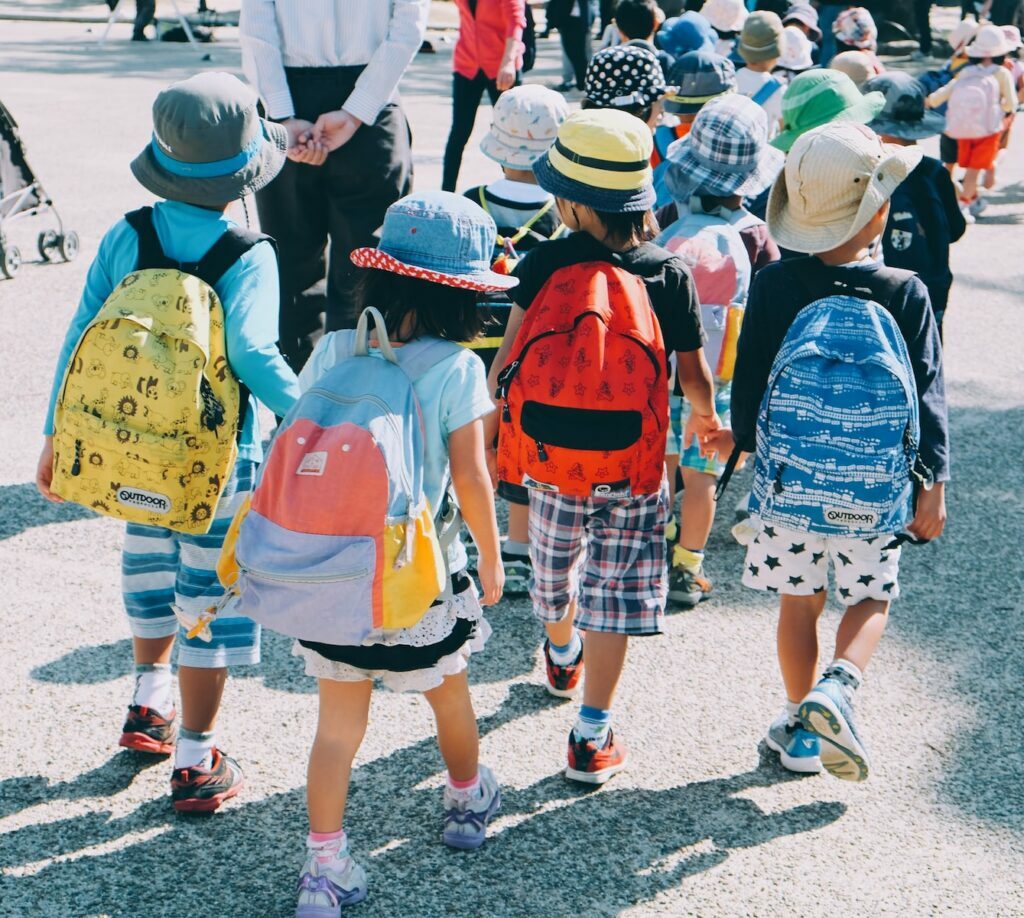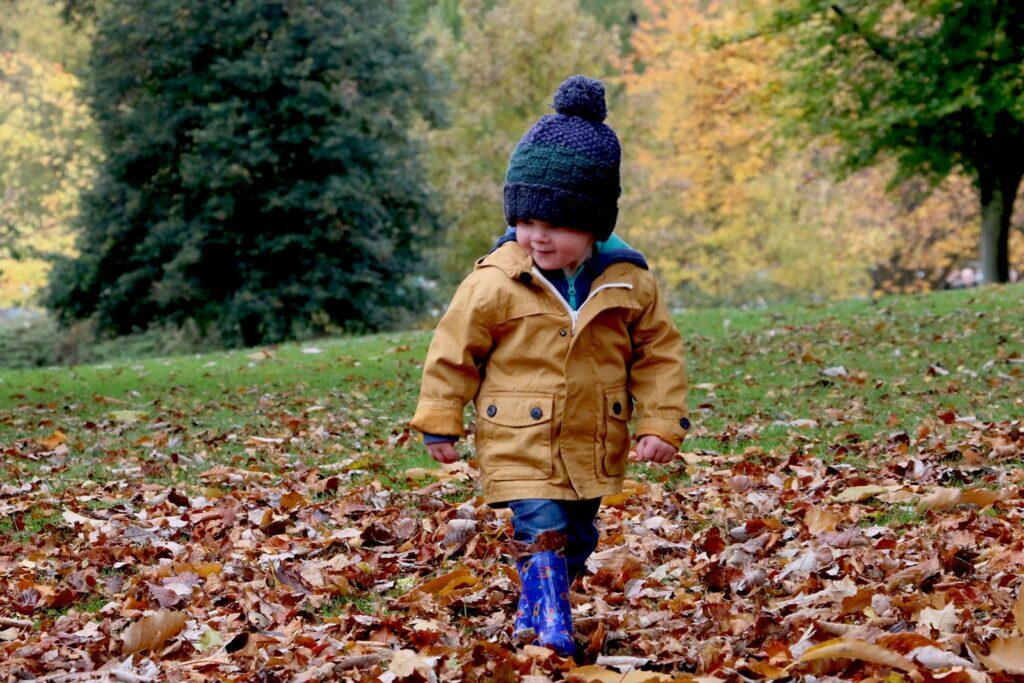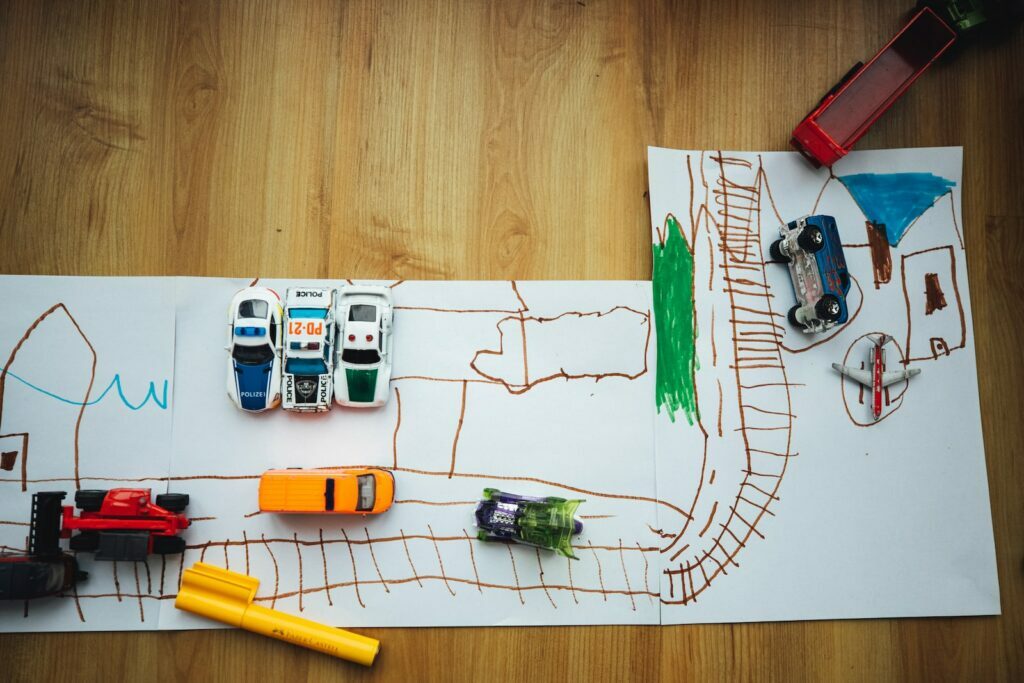How Childhood Experiences Shape Our Adult Identity and Personality
Who you are as an adult is often rooted in your childhood experiences. Learn how to use this knowledge to understand yourself better and create a more fulfilling life.

From the moment we are born, our childhood experiences shape who we become as adults. From early on, we learn the basics of life and grow up to be individuals with unique identities. Childhood is a formative period in everyone’s life. It is during this time that we develop a strong sense of self and are heavily influenced by our family dynamics, cultural backgrounds, and environment.
As children, we form relationships with those around us and learn important values such as trustworthiness and respect. These experiences shape how we interact with others in adulthood. We also gain valuable skills that influence our decision-making processes later in life.
But what exactly is it about our childhood that shapes us and affect our adult identity? In this article, we will explore how childhood experiences have a lasting impact on our lives and how it contributes to the formation of our adult identity and explore various aspects of childhood development and how they contribute to who we become as adults.

How does childhood shape your adult identity?
Childhood experiences play a crucial role in shaping a person’s adult identity. The relationships, environment, and behaviours a child is exposed to during their formative years lay the foundation for their beliefs, values, and behaviour patterns as adults. These early experiences shape a person’s self-image and their view of the world, affecting their relationships and decision making in adulthood.
If a child experiences nurturing and supportive relationships, they may grow up with the freedom of self-confidence and the ability to form a healthy relationship with self and be aware of their true worth and others. On the other hand, if a child experiences abuse or neglect, they may struggle with self-doubt and have difficulty forming secure relationships. Parents and teachers are responsible for providing a positive and supportive environment during childhood to help children develop into confident, successful adults. Recent statistics show alarming growing numbers of young people struggling with their identity and facing mental health issues.
Table of Contents
Understanding how childhood shapes your adult identity
Our ability to identify and understand emotions develops as a result of interactions with family members and peers during childhood. The way we think about ourselves and perceive others is largely determined by these early interactions; they can even have an effect on the way we approach difficult situations or take risks when faced with an unfamiliar challenge.
From the moment we enter the world, childhood experiences shape the people we become as adults. We learn the basics of life and develop our unique identities. But what exactly is it that childhood brings to the table in terms of our adult identity? This article looks at how childhood plays a vital role in forming our adult character.
Childhood is a formative period in all of our lives. During this time, we learn important values and build relationships that shape the way we interact with people in our adulthood. We also develop skills that will help us make decisions in our future.
Emotional intelligence is also heavily influenced by our childhood. We learn to identify and understand emotions through interactions with our family and peers. These early interactions even shape the way we think of ourselves and approach difficult situations.
By understanding how childhood affects our adult identity, we can better prepare for the future. We can start fostering positive relationships right from the start and recognize the importance of early childhood development. This article explores the various aspects of childhood that contribute to our adult identity.
We all have childhood memories that shape our identity as adults. But how exactly does childhood shape our adult identity? To understand this, let’s look at the role of social interactions, brain development and childhood experiences in forming our identities.
Childhood memories are the building blocks of who we become as adults. They shape our interactions, our thought patterns and our experiences. These memories are a tapestry of the moments that define us, each one woven together to form the fabric of our being.
It starts with social interactions, the conversations we have with family members and the relationships we form with friends. These interactions help us understand ourselves and others, and form the values that guide us in life. Respect, loyalty and trust are just a few of the important threads woven into this tapestry.
Brain development is another critical aspect in shaping who we become. Our brains grow and evolve during childhood, allowing us to learn new skills, build emotional intelligence and develop cognitive abilities that stay with us for life. These memories are stored, shaping our thoughts and behaviour in adulthood.
Childhood experiences are also a major contributor to our adult identity. Learning a new language, participating in sports activities, and exploring different cultures all help shape us into well-rounded individuals, equipped with the skills necessary for success in later life.
It’s clear that childhood is a powerful force, moulding us into the adults we become. Social interactions, brain development, and experiences all have a hand in forming our adult identity. Each childhood memory is a precious piece of the puzzle, coming together to make us who we are.
Childhood memories hold the power to shape who we become as adults. The way we interact with others, how our brain develops, and the experiences we have all play a crucial role in moulding our adult identity.
As children, you were a part of conversations with family, formed friendships, and learned values that continue to shape you today. These interactions help build your understanding of yourself and others, shaping your relationships and values for life.
Your brain, too, underwent a crucial transformation during childhood. Discovering and developing, it allows you to learn new skills, build emotional intelligence, and develop cognitive abilities that stay with you forever. The memories stored away from these formative years shape your thoughts and actions as an adult.
Childhood experiences also play a significant role in shaping who you are today. From learning a new language to participating in sports activities, these experiences broaden your horizons, making you a more well-rounded individual with the necessary skills for success in later life.
Childhood is a defining period in our lives, and the memories, interactions, and experiences from that time continue to shape us as adults. Understanding the role childhood plays in our identity can help us unlock our full potential and live life to the fullest.
The role of parents and family in building your identity
Your adult identity starts with the early years of your life. How you are raised and treated in your childhood has an enormous impact on your behaviour and outlook later in life. But what specifically plays a major part in forming your identity, revolves around your family and your parents.
Parents and family members shape their children’s identity, providing them with a sense of security, introducing them to values and beliefs, and teaching them about the world around them. By establishing rules, expectations, standards and expectations, parents could help their children develop self-discipline and responsibility. But the real contribution is the love, support, guidance, and encouragement they bring into a child’s life, which gives the child a strong foundation to build on as they grow up.
Family dynamics also play an important role in the development of a child’s identity. Children learn how to understand themselves better by observing the relationships between their parents or guardians and other family members. How siblings interact with each other can also give kids insight into different types of relationships that exist outside the home setting. By understanding these dynamics, children can gain valuable insights into how families operate which helps shape their own adult identities too.
It’s clear that parents and family have an immense influence on shaping our childhood experiences – which in turn shapes who we become as adults. As such, it’s essential that children have a positive environment where they can develop healthy habits for adulthood while building meaningful connections with those around them.
Every day, you have the opportunity to shape your child’s identity. The rules you establish, the expectations you set, and the standards you uphold, all help to build self-discipline and responsibility in your child. By showing your love and support, and offering guidance and encouragement, you give your child the foundation they need to grow and flourish.
In addition to your role, family dynamics also play an important part in shaping a child’s identity. By observing the relationships between family members, children learn about the different types of relationships that exist in the world. Siblings also teach children about cooperation, communication, and conflict resolution. By experiencing these dynamics, children develop a deeper understanding of the world around them and gain insight into how families operate.
You have the power to create a positive environment where children can develop healthy habits and form meaningful connections. Your influence will last a lifetime, and shape who your child becomes as an adult. So take this responsibility seriously, and use it to shape the next generation in a way that will make a positive impact on the world.
The impact of early experiences
Our earliest experiences shape our adult identity in more ways than we might expect. From the time we are born, our environment, relationships, and behaviours all play a role in the person we become. The impact of these early experiences is especially significant.
We don’t always realise it, but our formative years determine how we view ourselves, the world around us, and how we interact with others. Those first few years set the foundation for later life decisions and behaviour patterns. For example, if a child is exposed to harsh criticism or abuse they may grow up struggling to believe in themselves and their abilities. On the other hand, if a child is nurtured with love and support during their development they will likely have greater self-confidence as adults.
It’s clear that these early experiences have a lasting effect on our lives. We must pay attention to how children are being raised in order for them to be able to lead healthy and successful adult lives. It’s important for parents and caregivers to provide structure while also showing warmth and understanding so that children feel safe enough to explore the world around them without fear of failure or judgement. By doing this during childhood, it will help ensure that children can develop into confident adults who are capable of achieving their goals.
The influence of socialization
From a young age, we are influenced by the people around us. Socialisation is a primary factor in how our adult identity is shaped. It’s a complex process that involves learning the values, norms and beliefs of our family, peer group and culture to form our own identity.
Socialisation starts from birth and continues throughout life, with each stage having a different impact. During childhood, parents and other family members teach us about their beliefs and expectations for us. As we grow older, peers take on greater importance in our development, as we learn to interact and cooperate with others. By adolescence, society begins to exert more influence as we become aware of the cultural norms surrounding us.
This socialisation process helps shape our understanding of who we are and what role we should play in life. We learn which behaviours are seen as acceptable or unacceptable in our culture or community, how to maintain relationships with others, and how to navigate social situations successfully. These experiences are essential building blocks for forming self-confidence, empathy and resilience; all important factors in forming an adult identity that can stand up to life’s challenges.
As adults, it’s important to recognize the impact that socialisation has had on our identities and learn how to use it positively going forward. Understanding how these early experiences have shaped our beliefs can help us make meaningful changes in areas where necessary – so that we can live authentically according to who we truly are instead of conforming to external pressures or expectations from others.
The power of values and beliefs
Values and beliefs are the very fabric of our adult identities, forming the foundation for how we interact with the world around us. From a very young age, these values and beliefs are instilled in us by our families, schools, and communities. As we grow older, we either reaffirm those values or choose to adopt different ones that reflect who we want to become as adults.
Our values and beliefs can be seen as the building blocks of our identity. They are the guideposts that inform how we interact with others, how we think about ourselves, and what goals we strive towards in life. These values also shape our sense of morality and justice; they determine what is right and wrong for us personally, as well as where we stand on broader issues such as politics or religion.
By considering our own personal values and beliefs, it’s easier to understand why certain experiences have had a greater impact on us than others throughout life. Our core principles influence how we interpret events, whether positive or negative. They help define who we are now and who we will become in the future – even if those values evolve over time – ultimately making them an essential part of our adult identity.
The influence of culture and society
From the early days of childhood, we are exposed to a variety of cultural norms and values that shape our development into adulthood. These beliefs, attitudes, and customs are ingrained in us from an early age, allowing us to create a sense of self-identity.
One of the most influential aspects of culture is the way it shapes our views on relationships. Through interactions with family members and peers, we develop an understanding of how relationships work and what is expected from them. We learn about gender roles, communication styles, and conflict resolution strategies through shared experiences. This foundation gives us an idea of how to interact with others as adults.
These lessons also help us form our personal values and beliefs. Our culture provides us with a framework for making decisions about right or wrong behaviour based on our own experiences. We can use this knowledge to make informed choices in adulthood that reflect our values and beliefs. With this level of understanding, we can take ownership over our identity as adults and make choices that align with who we want to be in life.
The role of friendships and relationships
As we go through life, friendships and relationships play an important role in shaping our identity. From the earliest stages of childhood, these connections help to form our sense of self, and how we interact with the world around us.
In childhood, friends can teach us about how to navigate life’s challenges. We learn skills like communication and compromise while connecting with others who come from different backgrounds than our own. As we grow older, relationships become more complicated; but they remain a key factor in forming our adult identity.
Familial bonds are especially crucial when it comes to making sense of ourselves as adults. Parents and other family members provide comfort and stability during times of change or uncertainty. They also help to shape our values, beliefs, and expectations as we move into adulthood. The influence of friendships and relationships on identity formation is undeniable—even if it may be hard to see on the surface.
The impact that these connections have on us is far-reaching; whether through teaching us valuable lessons or providing emotional support when needed most. It’s important to recognize how powerful these relationships can be for helping us discover who we are as individuals over time.
The impact of education and learning
Imagine a bright young child, bursting with potential and a thirst for knowledge. They have a vivid imagination and an insatiable curiosity about the world around them. But when they enter the education system, something seems to change. That once brilliant spark begins to fade, replaced by frustration, boredom, and a sense of being held back.
So why does this happen to so many of our brightest young minds? The education system can be a challenging environment for children. They may not receive the personalised attention they need to thrive, and the traditional teaching methods used in classrooms may not engage them in a way that speaks to their unique learning style.
The pressure to perform well and the stress of standardised testing can also take its toll. Children who once felt confident in their abilities may start to lose faith in themselves, succumbing to feelings of self-doubt and discouragement. This can be especially damaging when combined with a limited focus on creativity and critical thinking skills.
It’s important to remember that every child is unique and learns in their own way. When children become disinterested in subjects they find boring or unengaging, they are less likely to reach their full potential. It’s up to us to create an education system that recognizes and supports the individual needs of each child, so they can continue to shine and reach their full potential.
Why do so many children, full of wonder and possibility, brimming with potential and eager to learn, once entering the education system, suddenly find themselves struggling to keep up, losing interest in their studies, and feeling like their brilliance was being stifled. What happened to the bright, curious child they once were?
Picture yourself in a crowded classroom, where the teacher is doing their best to give you individual attention, but with so many students, it’s just not possible. You’re expected to keep up with the pace of the class, but the teaching methods being used don’t align with your learning style. The pressure to perform well and succeed can be overwhelming, and you feel like you’re being evaluated constantly through standardised tests.
Creativity and critical thinking are encouraged, but only within strict boundaries. And let’s not forget the subjects you find unengaging or boring, they sap your motivation and make you feel like you’re just going through the motions.
It’s a sad reality that many brilliant children become average once they enter the education system. But it doesn’t have to be this way. By providing personalised attention, engaging and effective teaching methods, reducing pressure and stress, encouraging creativity and critical thinking, and making subjects interesting and relevant, the education system can help every child unleash their full potential and achieve their dreams.
Education and learning is a journey that has the power to shape your very being. From the moment you start exploring the world as a child, you begin to absorb new skills and knowledge that mould you into the person you will become. The quality of education you receive can vary greatly, but the drive for excellence should always remain the same. As an adult, you have the chance to broaden your horizons and develop essential skills that will serve you well in adulthood.
Your education journey never truly ends. Throughout your life, you have the opportunity to continue learning who you are. This process of self-discovery leads to personal growth and ultimately shapes your identity. Embrace learning, explore new interests, delve into subjects that captivate you, and seek out additional training and never stop investing in the person you are destined to be.
The effect of technology on identity formation
Technology has revolutionised the way we interact with one another, and it has also had a significant impact on how our identities are formed in childhood. From social media to video games, technology provides us with an array of tools for expressing ourselves and exploring who we are. Through technology, children can explore different aspects of themselves in ways that weren’t available before.
Children now have access to a variety of online communities where they can share their thoughts and feelings without fear of judgement or embarrassment. This gives them the opportunity to express their true selves, allowing them to develop strong identities even at a young age. Additionally, technology is constantly evolving, providing new opportunities for children to discover who they are and what makes them unique.
At the same time, however, there is a growing concern that technology may be having a negative impact on identity formation among children. Social media can create an unrealistic image of perfection which can lead to unhealthy comparisons between people’s lives and idealised versions of themselves that exist online. Furthermore, too much time spent online can lead to feelings of isolation or disconnection from reality which can be detrimental to identity formation.
As technology continues to advance, it has become a major player in shaping our identities, especially during our formative years. You may not realise it, but the way you interact with technology has the power to shape who you are and who you will become.
From social media to video games, technology offers endless opportunities to express yourself and explore your identity. With the click of a button, you have access to a world of online communities where you can share your thoughts and feelings, giving you the courage to be your authentic self. Technology allows you to discover different parts of yourself, making you more self-aware and confident in who you are.
But with this powerful tool, there also come some challenges. Social media can create an unrealistic image of perfection, leading to comparisons and feelings of inadequacy. Spending too much time online can also leave you feeling isolated and disconnected from reality, making it difficult to form a healthy identity.
It’s important to remember that technology is simply a tool and it’s up to you to use it in a way that will positively impact your identity formation. Use it as a means of self-expression and exploration, rather than a way to create false images or compare yourself to others. By doing so, you will empower yourself to become the best version of yourself and have a strong, healthy identity.
Technology has the power to shape your identity in both positive and negative ways. You must take an active role in guiding and monitoring your own use of technology and encourage those around you to do the same. You can harness the power of technology to explore new aspects of ourselves, connect with others, but remember to build a strong sense of self that will last a lifetime.
As technology continues to evolve, so must you. By embracing the opportunities it provides, you can continue to grow and evolve, shaping your identity into the best possible versions of yourself. It is up to you to make the most of the technology at your fingertips and to take control of how it impacts your life and your identity.
It is clear then that technology plays an important role in shaping our identities as adults but it is essential that we take measures to ensure that its influence is positive rather than harmful. Technology should be used as a tool for fostering self-expression and exploration rather than as a means of creating false images or promoting unhealthy habits. By doing so we will ensure that our children grow up with strong identities and healthy self-esteem.
The significance of media and popular culture
Media and popular culture play a vital role in the formation of our identity. From the moment we are born, these two aspects have an immense influence on how we develop as individuals. We are exposed to media and popular culture from a young age, through television shows, films, books, music, and various other outlets. This exposure shapes our understanding of the world around us and can shape our core values and beliefs as adults.
How we view ourselves is largely shaped by what we see in the media and popular culture. We learn about different cultures through television shows or movies; it shapes how we think about those cultures and how we interact with them when given the opportunity. Similarly, popular culture allows us to form opinions on topics such as beauty standards or gender roles that can influence our beliefs later in life. Through these forms of media, we also learn to compare ourselves to others which can lead to feelings of inadequacy or inferiority.
These influences start early in life and can have lasting effects throughout adulthood. Media and popular culture create an idealised version of reality that is difficult for some to escape from – leading to unrealistic expectations or even self-doubt. It’s important for us to be aware of these influences so that they don’t become detrimental to our overall identity development. Taking time to reflect on the ways in which these influences impact us is essential for developing a healthy sense of self-worth and confidence in adulthood.

Exploring your identity: the role of gender
Gender is a powerful force in shaping our identity from the start of life. As we grow up, it can have a huge impact on how we view ourselves and the world around us. Examining this role is essential for understanding how childhood shapes our adult identity.
From the moment we are born, gender has an influence on our lives. We are dressed in different clothes, given different toys to play with, and often face unequal expectations based on our gender. Young boys may be encouraged to take risks while young girls may be discouraged from doing so. Gender-based conditioning continues throughout our childhoods as we learn what types of behaviours are deemed appropriate or acceptable for each gender. This can have a lasting effect on how we view ourselves and others as adults.
Gender also plays a role in the media and popular culture that children consume. Movies, television shows, books, and other forms of media often contain messages about gender roles that children internalise without realising it. These messages can be subtle or overt but they shape children’s views of themselves and their place in society as they grow older. It is important for parents to monitor what their children watch and read so that these messages do not become too deeply ingrained in their identities over time.
The role of gender in childhood must not be overlooked when considering how it affects adult identity formation. Its influence starts early and can shape many aspects of life from behaviour to beliefs about oneself and others. Taking into account this powerful factor can help us better understand why people act a certain way or think certain thoughts as adults – allowing us to create more effective solutions for any issues that arise as a result of its impact over time.
Examining the impact of generational trauma
Trauma is an unfortunate reality for many individuals, especially for children. They may experience trauma through abuse, neglect, or even witnessing traumatic events. These experiences can impact their identity formation and leave lasting effects throughout their lives.
Generational trauma is when the effects of trauma are passed down from one generation to the next. Children who grow up in environments where trauma is common may internalise negative beliefs and behaviours. These patterns can be difficult to break and can shape how they perceive themselves and the world around them.
It is important to recognize the impact of trauma and understand how it can shape an individual’s identity. By providing children with a supportive and nurturing environment, they can begin to heal and develop a positive self-image. Encouragement, love, and a safe place to express their emotions can go a long way in helping children to overcome the negative effects of trauma.
It is important to remember that healing is a journey and it is never too late to start. With the right support, children can learn to overcome the effects of trauma and grow into healthy and resilient adults. So, let’s work together to provide a supportive and healing environment for our children and break the cycle of trauma for future generations.
Generational trauma can have a profound impact on the lives of children and their sense of identity. The effects of trauma can linger for generations, affecting not only those who directly experienced it, but also those who come after.
As a child growing up with the weight of generational trauma, you may find yourself struggling with feelings of fear, anger, or hopelessness. You may feel disconnected from your family and culture, and unsure of your place in the world. These experiences can shape your sense of self and affect the way you relate to others, leading to difficulties in forming healthy relationships.
However, it’s important to remember that trauma doesn’t have to define you. With the right support and resources, it’s possible to heal from the effects of trauma and reclaim your identity. Surrounding yourself with a supportive community, engaging in therapy, and learning about the history of your ancestors can all be helpful in the healing process.
By confronting the impact of trauma, you have the power to break the cycle and create a new legacy for yourself and future generations. It takes courage and strength, but the journey to healing and self-discovery can lead to a more fulfilling and meaningful life.
Trauma has a profound effect on the development of our identity, particularly during childhood. It can disrupt and shape how we view ourselves and the world around us, as well as our relationships with other people. It is important, then, to explore the impact of trauma on our sense of self and identity.
When we experience traumatic events in childhood, we can become emotionally overwhelmed. This can lead to feelings of helplessness and a loss of control that affects our emotional regulation abilities. We may have difficulty developing trust in others or ourselves, leading to feelings of insecurity or isolation. We may also struggle with forming meaningful relationships due to fear or mistrust.
The effects of trauma can linger into adulthood if not addressed properly. We may find it harder to express emotion or set healthy boundaries for ourselves. We may be more prone to anxiety or depression, feeling disconnected from the world around us or isolated from others. Without proper processing and understanding, trauma can lead to long-term difficulties in maintaining healthy relationships and managing stress levels.
It is important to recognize how childhood experiences shape our adult identity, especially when it comes to the lingering effects of trauma. With increased awareness and access to resources, it is possible for individuals to gain insight into their own experiences and take steps towards healing from them.

Recognizing the effects of mental health
Mental health is an integral part of our identity, and how it shaped us during childhood has a lasting impact. Recognizing the effects of mental health on our adult identity can help us better understand ourselves and the choices we make.
The way we perceive ourselves, others, and the world around us often stems from our mental state as a child. Trauma experienced in youth can lead to issues like depression, anxiety or fear down the line. This can manifest in adulthood as low self-esteem, difficulty forming relationships or an inability to cope with stress.
It is important for us to be aware of these long-term effects so that we can take action. We should strive to foster positive mental health in our younger years; whether by seeking professional help or engaging in activities that bring us joy. That way, we can ensure that our adult identity is rooted in a healthy foundation that will benefit us throughout life.
The early years of self-perception and self-image
Your childhood experiences have a powerful impact on your adult identity, shaping the way you see yourself and the world around you. Understanding your self-perception and self-image is a journey of self-discovery, a path towards embracing your strengths and overcoming your limitations.
It all starts with your thoughts and beliefs about yourself, the roles you play in society, and the messages communicated to you by those closest to you. Your self-perception is shaped by the positive and negative labels you have internalised, based on the experiences and relationships you have had throughout your life.
Your self-image, on the other hand, is a reflection of your individual assessment of your own strengths and weaknesses, based on your past experiences. It is a way of understanding who you are and what you are capable of. But, it can also hold you back, if negative experiences from your childhood have left a lasting impression on you.
The environment in which you were raised, the relationships you had with your parents, friends, teachers, and peers, all play a role in shaping your self-image. If you have experienced trauma or felt unsafe as a child, it can have a lasting impact on your self-confidence, affecting the way you see yourself and your ability to cope with challenges as an adult.
But, with self-awareness and self-discovery comes the power to move forward with greater confidence and resilience. By acknowledging the impact of your childhood experiences, you can work towards creating healthy coping mechanisms and embrace your strengths, letting go of the limitations that hold you back. Your self-perception and self-image are yours to shape, and the journey towards understanding yourself is a beautiful and inspiring one.
Self- reflection on childhood memories shaping your adult identity
Childhood memories are some of the most cherished and enduring memories a person can have. They often shape our sense of self, our beliefs, and our values. Childhood memories can evoke strong emotions and provide a connection to our past, helping us to feel rooted and grounded.
Whether they are happy memories of spending time with family and friends, or difficult memories that have shaped us in meaningful ways, childhood memories have the power to shape our lives in profound ways. They can provide us with a sense of comfort and familiarity, reminding us of who we were.
Behind your memories there is a story worth sharing, helping you to understand who you are today.
It’s important to take the time to reflect on your childhood memories, to cherish the good ones and to work through the difficult ones. By doing so, you can gain a deeper understanding of yourself and your place in the world, and you can use your memories as a foundation for growth and self-discovery.
So, hold on to your childhood memories, and let them continue to shape and guide you as you journey through life. They are a precious part of your identity, and they will always be with you, no matter where your path takes you.
You are on a journey of self-discovery and understanding what shapes your adult identity is an important part of that journey. As you look back on your life experiences, you may see how they have shaped your beliefs, values, and sense of self. The relationships you have had with others, including family, friends, and romantic partners, have played a significant role in shaping who you are today.
Your educational and career choices have provided opportunities for personal and professional growth and have helped to shape your identity. Your personal values and beliefs about life, morality, spirituality, and other important topics are a reflection of who you are and what you stand for. Your hobbies and interests have also played a role in shaping your identity by providing opportunities for personal fulfillment and self-expression.
This self-reflection is an opportunity to get to know yourself on a deeper level and to gain a greater understanding of who you are and what shapes your identity. By embracing this journey of self-discovery, you have the power to make informed decisions about your future and to live a more authentic and fulfilling life.
The way that our childhood experiences shape us as adults can be seen in our self-perception and self-concept. Our self-perception is based on what we believe about ourselves; the things we think we are good at, the things that define us and how others perceive us. This perception is informed by our early experiences and interactions with other people and situations. Similarly, our self-concept is largely based on how others treat us and how we interpret their behavior. If these early interactions were negative or damaging, then it can lead to low self-esteem or even psychological issues later in life.
We also learn values from our childhood experiences which stay with us into adulthood. These values shape the decisions we make and influence how we behave in different situations. We may be more likely to act in certain ways if they align with things that were important to us when growing up – such as respect for authority or a strong sense of justice – even though our environment has changed significantly since then.
It’s clear that childhood plays an important role in who we become as adults. By recognizing this, it allows us to understand why certain thoughts or behaviours may have developed over time; helping us to better understand ourselves, which can ultimately lead to greater personal growth and improved relationships with those around us.
Your childhood experiences are an integral part of who you are. From your first memories to your first heartbreak, these experiences have moulded your values and beliefs, and have helped shape your perception of the world around you.
As a child, you may have learned about honesty, kindness, and integrity from your parents and teachers, but it was up to you to internalise these values and make them your own. Maybe you learned about the importance of perseverance from watching a loved one face a difficult challenge, or about the power of hope from overcoming a personal struggle.
Even now, as an adult, your childhood experiences continue to influence your beliefs and values. Maybe a childhood experience has led you to believe in the importance of forgiveness, or maybe it’s given you a greater appreciation for the beauty of nature. Regardless, these experiences are a part of who you are and they continue to shape your thoughts and decisions.

Is the world going through an identity crises?
Identity crises are a natural part of life’s journey. They can be difficult, but they also offer a unique opportunity for personal growth and self-discovery. Imagine feeling lost and uncertain about who you are and what you want in life. It can be a confusing and overwhelming experience. But it’s important to remember that this is a normal part of the process. You are not alone in your struggles, and you have the strength and resilience to overcome them.
Through an identity crisis, you have the chance to reassess your beliefs and values, to explore different possibilities and lifestyles, and to gain a deeper understanding of yourself. This can be a time of great personal growth, as you delve into the depths of your soul to find what truly resonates with you.
So, if you’re going through an identity crisis, know that you are on a brave and important journey. Embrace the opportunity to discover who you truly are, and to create the life that you want for yourself. Trust yourself, have faith in your journey, and know that the answers you seek are within you.
So, as you navigate through life, remember the impact that your childhood has had on who you are today. Embrace the lessons you learned, the values you hold dear, and the experiences that have shaped your perceptions. And never forget that your childhood experiences are a part of what makes you unique, and they will continue to influence your beliefs and values for the rest of your life.
As you read this, take a moment to reflect on your own childhood. Think about the moments that shaped your beliefs and values, the experiences that moulded you into the person you are today. Now imagine, what would life be like if those experiences were different? If your parents had a different job, if you grew up in a different neighbourhood, if you had a different best friend. Your entire life would be different, wouldn’t it?




